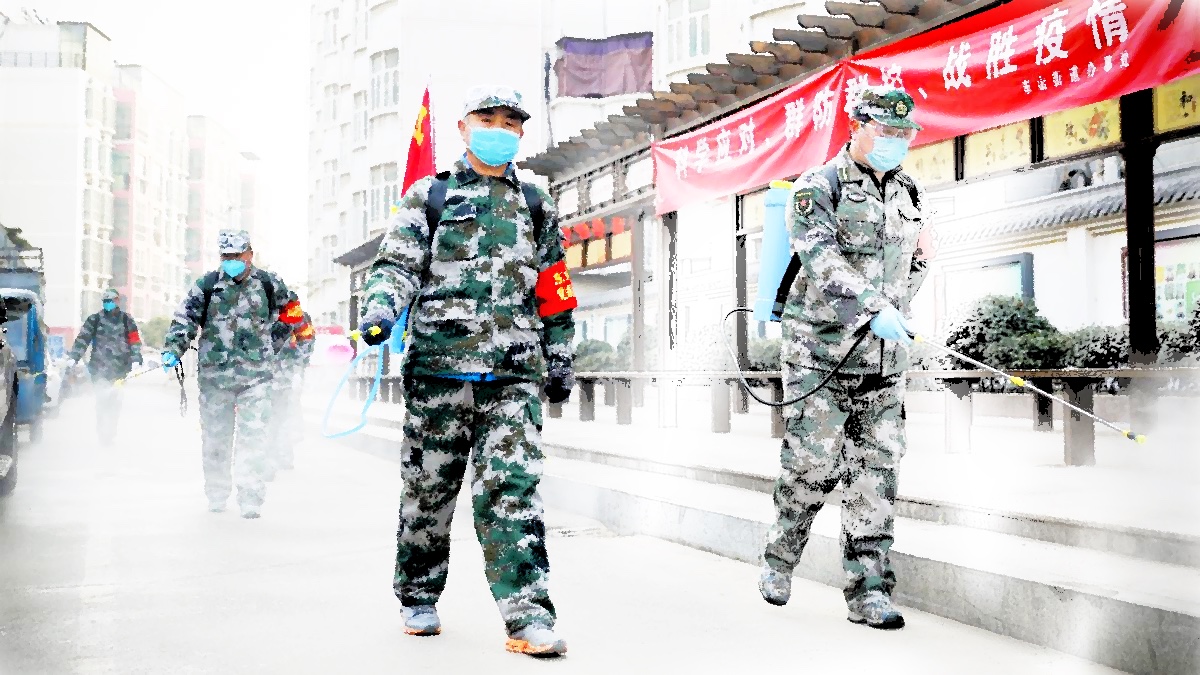It’s impossible to ignore the Coronavirus – with CNN and USA Today constantly updating/rumoring death tolls and the numbers of newly infected. If you really want the lowdown, read the South China Morning Post, which posts ten stories online daily. Or, you can read all you really need to know here.
I have spent all told eighteen months of my life in the People’s Republic of China from 1992 through 2012. This includes two January weeks at the apex of the SARS scare. Three things stood out back then: the rampant misinformation, the average PRC resident’s approach to illness, and the Chinese fire drill known as the PRC health bureaucracy. In short, stay in the US and use common sense, and you should have no problem riding out what could be a flu pandemic.
Not to be overly smug, but the default reaction to bad news by the People’s Government is CYA (cover your ass). This begins with phase-one secrecy; as in keep everyone in the dark until the problem is so rampant, sick foreigners are performing the show and tell. Phase-two minimalization is next; as in we have it contained to a province (Wuhan) or group (persons who work with fruit bats). Of course, this is found by the WHO to be total BS; thereby explaining why the PRC declines US offers of assistance.
The Chinese government actually has the information, but the folks in Beijing take face-saving propaganda very seriously. Ever notice China is the incubus of all bad influenzas? Well, the truth is embarrassing: too many poor people confined to filthy close quarters in a nation where preventive medicine is not taken seriously. Sadly, a nation of dumb clucks is governed by dumb clucks.
If you go to Google’s headquarters, there’s a world map alit with where the internet’s in use. The east coast of China looks like a lightning bolt – because all the poor from the interior move to the eastern industrial hubs, where factories house them in multi-story dormitories with internet. They work six days a week (and lie about Sunday) eat in factory cafeteria’s, watch TV in factory auditoriums and sleep in bunks. To say everyone is exposed to the same single common cold is an understatement.
In the USA, almost everyone knows the flu-bug drill: stay in bed, drink plenty of fluids, and take aspirin or acetaminophen. Above all, don’t bring your illness to work. This is anathema in China, where sick employees don’t dare miss a day of work – – until they are feverish wheeze-bags. Hopefully, a co-worker takes enough interest to alert public health (at about the time the rested American counterpart would be well).
Of course, the government hasn’t prepared a flu vaccine in advance: which is why the PRC acted so shocked when SARS and the Coronavirus appeared (and why US pharmaceuticals develop the vaccine). Springing into action, Chinese Public Health employees hand out masks, spray disinfectant fog, build influenza tent cities, and quarantine entire areas as large as provinces. This is true, meaning their “health plan” is nothing more than riding out the flu season.
During the SARS outbreak, the health “check points” were manned by the same immigration agents I had passed on previous trips, albeit in masks. I filled out a useless questionnaires (e.g. have you a cough or fever? If yes, tell agent). There were also heat-sensing cameras (that looked like 70s-style blow dryers) scanning the lines for feverish travelers, who might have lied about a cough or fever. Around the corner, a guy was renting time on an ice bag to defeat the scanners – – and westerners were having a good laugh.
So, here’s the Conservative Guardian survival guide. One, don’t go to China or Chinese watering holes (like Singapore). Two, don’t mouth-kiss anyone returning from China. Three, wash you hands a lot, and don’t touch your eyes, nose or mouth. Four, if you catch a cold, use common sense. Five, if your cold is extraordinarily bad, visit your doctor. You can thank me later.
